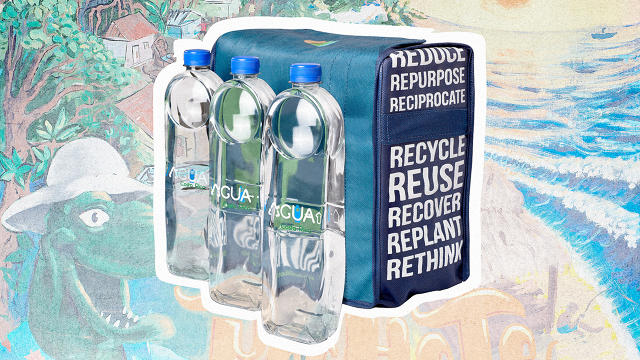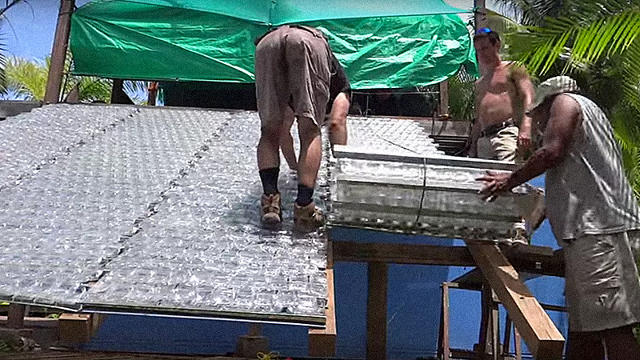Futures Forum: Upcycling: 'Kevin's Supersized Salvage'
... a rather nice comment arrived:
I’m doing an internship at a company that makes custom vinyl print for upcycling projects. They’ve done some really fun stuff with fridges in particular. Plus they do it for just about anyone ! Just thought I’d share the link :
https://www.vinylrevolution.co.uk/vinyl/fridgewraps/
For example:

FridgeWraps And Fridge Decals | Vinyl Revolution
There have been loads of similar projects and businesses who are into 'upcycling':
How To Upcycle Using Chalkboard Vinyl

Upcycling can initially seem like a daunting concept but there are simple ways you can turn an old piece of furniture in to something really special. As a busy working mum I have no intention of sandblasting down old dressers and turning bath tubs in to arm chairs but here is an example of an easy project that any one can do.
I purchased a roll of chalkboard vinyl from a local discount store for £2.99 and used it to upcycle my daughters old wooden table. After nearly 3 years of daily use it had become very tired looking and the sticker design on top was torn and messy.
In total this project only took me 1 hour and I was very happy with the finished project as my daughter now had a multi purpose table she could continue to use. She can use it as a chalk board as well as a place to do her craft activity’s and because it is wipe clean she can even eat from it.
How to upcycle your neighbourhood
September 17, 2015
 In Cleveland, Ohio more than a third of people live below the poverty line. Lee Chilcote discovers how the upcycling movement is becoming a force for reinvention – benefitting the environment, boosting the local economy and helping people to ‘reclaim their discarded neighborhoods’
In Cleveland, Ohio more than a third of people live below the poverty line. Lee Chilcote discovers how the upcycling movement is becoming a force for reinvention – benefitting the environment, boosting the local economy and helping people to ‘reclaim their discarded neighborhoods’
When David Van Horn’s mom first told him about the Upcycle Parts Shop in the St. Clair Superior neighborhood of Cleveland, they both thought it was a motorcycle shop. That’s the kind of business that’s common in this low-income neighborhood on the city’s east side. Yet when Van Horn learned that it was actually a craft store for salvaged materials, he got excited.
How to upcycle your neighbourhood - NewStartWhy A Man Who Hates Plastic Water Bottles Is Making Plastic Water Bottles
Donald Thomson, a 56-year-old, Canadian-born builder, entrepreneur, and self-taught designer, launched ‘A’Gua-brand water bottles in Costa Rica earlier this year. But he sees no contradiction in his current endeavor: converting reclaimed, custom-designed, PET plastic water bottles into roofing tiles that are filled with an insulating, lightweight mix of aerated concrete and waste paper, which can be tinted to simulate marble, slate, or ceramic tile. (He now also is exploring using corn stover, an agricultural waste, as a filler.)
Thomson has devised an innovative way to make the waste stream for one industry (the single-use beverage sector) into the value stream for another (the affordable housing market). He aims to be a poster boy for the circular economy.
"I wouldn’t even drink out of a plastic bottle," he recounted in a recent telephone interview from his home in Belen, Costa Rica, where he and his wife, Terry-lee, moved 25 years ago. And he certainly had no intention of becoming a water industry executive.

"My dream … I talk about REAP: Recover, Enrich, Appreciate, Prosper. When you build someone a house, you need to make sure it’s going to appreciate in value, or you’re only going to make them poorer."

This is how Thomson squares his ideals with his current business.
He sees the plastic bottle as a means to an end.
Why A Man Who Hates Plastic Water Bottles Is Making Plastic Water BottlesIndustry jumps on upcycling bandwagon
Published : 2015-10-30 18:54
Updated : 2015-10-30 19:33
Updated : 2015-10-30 19:33
In October 2012, actress Moon So-ri faced a bank of flashing cameras as she walked the opening red carpet at the Busan International Film Festival, clad in a white dress. But this time, what made the headlines the next morning was not her looks or acting skills, but her costume that was made of old dress shirts and parachutes.
The maker of Moon’s dress, Kolon Industries, is one of the rising number of businesses that have in recent years been jumping on the green bandwagon here, transforming waste materials into products that are affordable, stylish and easy to use.
Corporate cost-cutting efforts, consumers’ calls for unique, cool yet less polluting goods and a global drive to curb ecological footprints have come together to give rise to the upcycling industry.
While large fashion houses are joining the trend as a strategy to diversify their product lineups and help clear inventories, small and midsize firms and start-ups are betting on novel ideas to entice eco-conscious shoppers.
Re;Code is Kolon’s upcycled fashion line launched in March 2012. It was born out of the Seoul-based firm’s struggle with inventory, company officials say. Brand new clothes are usually transferred to outlets and discount stores after the season ends, and then incinerated if not sold after three years. Kolon burns 4 billion won ($3.6 million) worth of never-worn items every year.
The brand uses not just out-of-date clothing but also unwanted military uniforms, tents and other equipment, as well as industrial materials like automobile air bags, seats and linings. All products are handmade, and no more than five items are available in the same design.
To boost its social responsibility activities and harness more out-of-the-box ideas, Kolon works with Goodwill Industries, a social enterprise run by disabled people, in disassembling clothing, while cooperating with independent designers. The maker of Moon’s dress, Kolon Industries, is one of the rising number of businesses that have in recent years been jumping on the green bandwagon here, transforming waste materials into products that are affordable, stylish and easy to use.
 |
| Kolon redesigns and reforms unsold fasion items for its upcycle fashion brand Re;Code. (Re;Code) |
While large fashion houses are joining the trend as a strategy to diversify their product lineups and help clear inventories, small and midsize firms and start-ups are betting on novel ideas to entice eco-conscious shoppers.
Re;Code is Kolon’s upcycled fashion line launched in March 2012. It was born out of the Seoul-based firm’s struggle with inventory, company officials say. Brand new clothes are usually transferred to outlets and discount stores after the season ends, and then incinerated if not sold after three years. Kolon burns 4 billion won ($3.6 million) worth of never-worn items every year.
The brand uses not just out-of-date clothing but also unwanted military uniforms, tents and other equipment, as well as industrial materials like automobile air bags, seats and linings. All products are handmade, and no more than five items are available in the same design.
[Weekender] Industry jumps on upcycling bandwagon
.
.
.


No comments:
Post a Comment